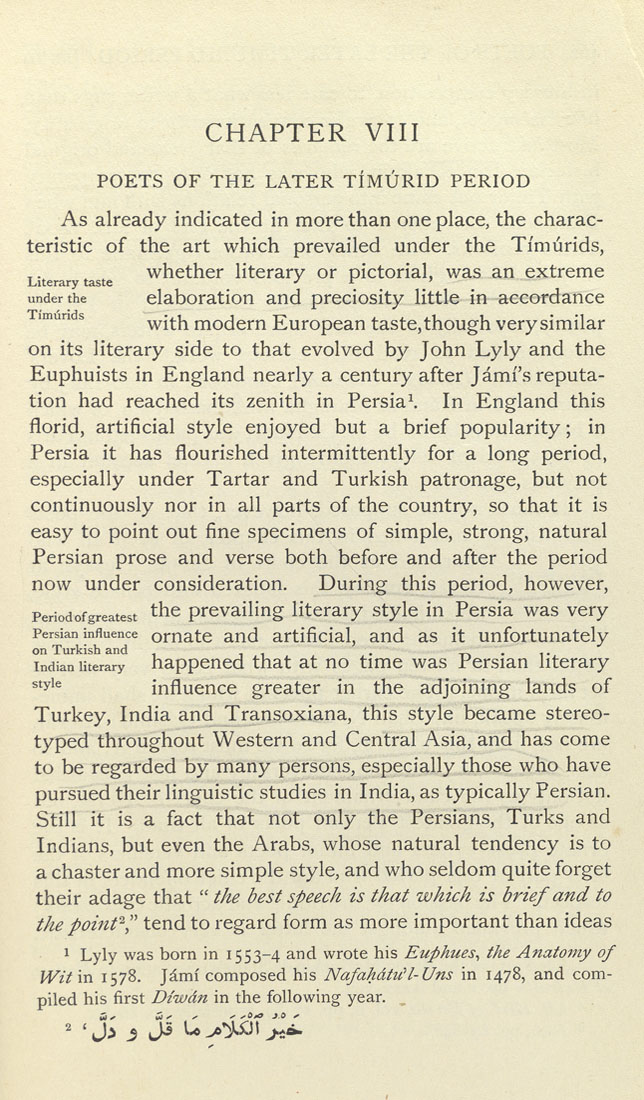CHAPTER VIII
POETS OF THE LATER TIMURID PERIOD
As already indicated in more than one place, the charac¬
teristic of the art which prevailed under the Timurids,
whether literary or pictorial, v/as an extreme
Literary taste j r '
under the elaboration and preciosity little in accordance
imuri s with modern European taste, though very similar
on its literary side to that evolved by John Lyly and the
Euphuists in England nearly a century after Jami's reputa¬
tion had reached its zenith in Persia^ In England this
florid, artificial style enjoyed but a brief popularity; in
Persia it has flourished intermittently for a long period,
especially under Tartar and Turkish patronage, but not
continuously nor in all parts of the country, so that it is
easy to point out fine specimens of simple, strong, natural
Persian prose and verse both before and after the period
now under consideration. During this period, however,
Periodofgreatest thc prevailing literary style in Persia was very
Persian influence omatc and artificial, and as it unfortunately
on Turkish and , . -r> • i •
Indian literary happened that at no time was Persian literary
^*y^^ influence greater in the adjoining lands of
Turkey, India and Transoxiana, this style became stereo¬
typed throughout Western and Central Asia, and has come
to be regarded by many persons, especially those who have
pursued their linguistic studies in India, as typically Persian.
Still it is a fact that not only the Persians, Turks and
Indians, but even the Arabs, whose natural tendency is to
a chaster and more simple style, and who seldom quite forget
their adage that " the best speech is that which is brief and to
the poinf^,'' tend to regard form as more important than ideas
1 Lyly was born in 1553-4 and wrote his Euphues, the Anatomy of
Wit in 1578. Jdmi composed his Nafahdtul-Uns in 1478, and com¬
piled his first Diwdn in the following year. _^
2 £
|








